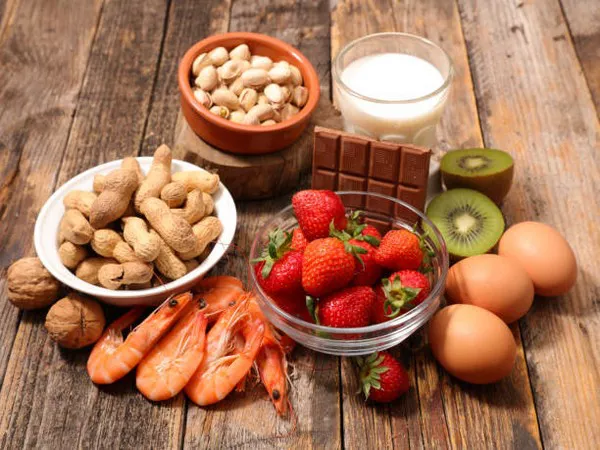When it comes to weight loss, many individuals focus on reducing their overall calorie intake and increasing physical activity. While these factors are undoubtedly crucial, the role of protein in weight loss should not be overlooked. Protein plays a vital role in numerous physiological processes and can significantly impact your weight loss journey. In this comprehensive article, we will explore the importance of protein in weight loss and how it can help you achieve your goals effectively. By understanding the relationship between protein and weight loss, you can make informed dietary choices and optimize your weight loss efforts.
Understanding Protein
Protein is an essential macronutrient that plays a fundamental role in the human body. It is made up of amino acids, which are the building blocks for cells, tissues, and organs. Here’s why protein is a powerful ally in your weight loss journey:
- Increased Satiety and Reduced Caloric Intake: Protein has been shown to have a high satiety value, meaning it can help you feel fuller for longer periods. By incorporating protein-rich foods into your meals and snacks, you can experience a greater sense of fullness and satisfaction, which may lead to reduced calorie intake. This can be particularly beneficial for individuals who struggle with overeating or frequent snacking.
- Metabolic Boost: Protein has a higher thermic effect of food (TEF) compared to carbohydrates and fats. TEF refers to the energy required to digest, absorb, and metabolize nutrients. Protein has a TEF of approximately 20-30%, which means that a significant portion of the calories from protein is used during the digestion and absorption process. By including protein in your diet, you can potentially boost your metabolic rate and increase calorie expenditure.
- Preservation of Lean Body Mass: During weight loss, it’s common to lose both fat mass and lean body mass, which includes muscle tissue. However, adequate protein intake can help preserve lean body mass and minimize muscle loss. This is crucial for several reasons. Firstly, lean body mass is metabolically active and contributes to your overall calorie expenditure. Secondly, preserving muscle mass can help maintain strength, mobility, and overall functional capacity. By consuming sufficient protein, you can support the preservation of lean body mass during your weight loss journey.
- Enhanced Fat Burning: Protein has been shown to enhance fat burning and promote weight loss. It does so through various mechanisms. Firstly, protein has a higher thermogenic effect, as mentioned earlier, which means that more calories are burned during the digestion and absorption process. Secondly, protein can help regulate appetite hormones, such as ghrelin and peptide YY, which can influence hunger and satiety cues. Lastly, protein can promote the use of stored fat as an energy source, helping to mobilize and oxidize fat during weight loss.
Determining Protein Needs for Weight Loss
While protein is important for weight loss, it’s essential to determine your individual protein needs based on factors such as age, sex, activity level, and overall health. The recommended dietary allowance (RDA) for protein is 0.8 grams per kilogram of body weight per day for the average sedentary adult. However, when it comes to weight loss, higher protein intake may be beneficial. Here are some guidelines to consider:
- Moderate Protein Intake: For individuals who engage in regular physical activity and are looking to lose weight, a moderate protein intake of around 1.2-1.6 grams per kilogram of body weight per day may be appropriate. This range provides sufficient protein to support muscle maintenance and recovery while creating a calorie deficit for weight loss.
- High Protein Intake: Some individuals, such as athletes, bodybuilders, or those with high levels of physical activity, may benefit from a higher protein intake. A range of 1.6-2.2 grams per kilogram of body weight per day can be considered in these cases. Higher protein intake can support muscle growth and repair, especially when combined with resistance exercise.
It’s important to note that these are general guidelines, and individual needs may vary. Consulting with a registered dietitian or healthcare professional can help you determine the appropriate protein intake for your specific circumstances and weight loss goals.
Incorporating Protein into Your Weight Loss Diet
Now that we understand the importance of protein in weight loss, let’s explore practical ways to incorporate protein into your diet:
- Choose Lean Protein Sources: Opt for lean sources of protein that are low in saturated fats and calories. Examples include skinless poultry, lean cuts of beef or pork, fish, eggs, low-fat dairy products, legumes, and tofu. These options provide high-quality protein while minimizing excessive calorie intake.
- Prioritize Whole Foods: Whole foods not only provide protein but also come with additional nutrients and fiber that support overall health. Incorporate foods such as lean meats, fish, poultry, beans, lentils, whole grains, nuts, andseeds into your meals. These choices not only contribute to your protein intake but also provide a wide range of vitamins, minerals, and antioxidants.
- Spread Protein Intake Throughout the Day: Distribute your protein intake evenly throughout the day to optimize its benefits. Aim to include a source of protein in each meal and snack. This approach helps maintain steady energy levels, supports muscle protein synthesis, and promotes satiety.
- Consider Protein Supplements: In some cases, meeting protein needs solely through whole foods can be challenging. Protein supplements, such as whey protein powder, can provide a convenient and concentrated source of protein. However, it’s important to remember that supplements should complement a balanced diet and not replace whole foods.
- Combine Protein with Fiber-Rich Foods: Pairing protein with fiber-rich foods, such as vegetables, fruits, and whole grains, can further enhance satiety and contribute to a well-rounded, nutritious meal. This combination provides a good balance of macronutrients and promotes overall health.
Conclusion
Protein plays a crucial role in weight loss and should be an integral part of any effective weight loss plan. Its ability to increase satiety, boost metabolism, preserve lean body mass, and enhance fat burning makes it a powerful ally in achieving your weight loss goals. Determining your individual protein needs, incorporating lean protein sources into your diet, and spreading protein intake throughout the day are key strategies to optimize its benefits. Remember, while protein is important, it’s essential to adopt a well-rounded approach to weight loss by combining it with regular physical activity, a balanced diet, and healthy lifestyle habits. By harnessing the power of protein, you can take significant steps towards achieving sustainable weight loss and overall well-being.
[inline_related_posts title=”You Might Be Interested In” title_align=”left” style=”list” number=”6″ align=”none” ids=”3069,3067,3065″ by=”categories” orderby=”rand” order=”DESC” hide_thumb=”no” thumb_right=”no” views=”no” date=”yes” grid_columns=”2″ post_type=”” tax=””]

































